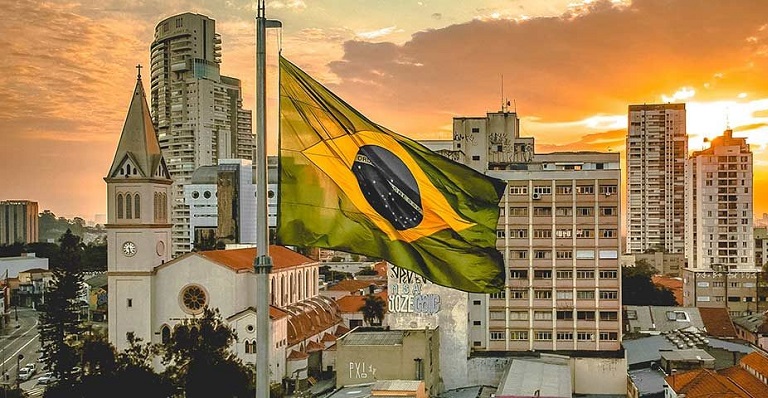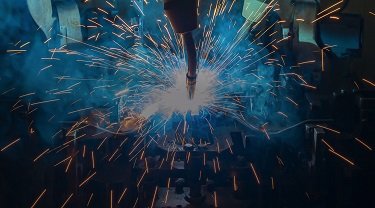With Brazil’s president-elect Jair Bolsonaro set to take his position in January, many Canadian exporters are wondering what the electoral outcome means for Canadian trade.
Foreign Affairs Minister Chrystia Freeland indicated she hopes to maintain strong bilateral ties between the two countries.
“Canada and Brazil enjoy a deep relationship ... numerous relationships between people and businesses, as well as ... our close cooperation on security and defence, agriculture, education, technology and innovation.”
It’s a theme echoed in the Canadian business community. Regardless of politics, people-to-people relationships are at the heart of business partnerships in Brazil.
A new congress and senate may mark stability in Brazil
The simultaneous election of a new congress and senate in Brazil may allow the country to continue to improve its business relationships across the globe. It’s anticipated the newly-elected will work to continue to improve Brazil’s business and security environments.
For years, Brazil was riddled with corruption in both government and business. Since 2014, however, politicians and corporations have successfully implemented reforms to reduce corruption. All candidates highlighted this as a positive development for Brazil’s position in the global economy, and all said they would continue to improve the business environment in the country.
Challenges remain for Canadian businesses in Brazil
Poor infrastructure has made it difficult to get goods and services to market. Half of Brazilians still don’t have access to proper wastewater services. An 11-day truckers’ strike earlier this year put the spotlight on tensions between unions and government.
Brazil still has relatively low productivity, relatively high employment costs and an underqualified workforce. Challenging labour regulations have been partially addressed by new labour laws introduced in 2017. But infrastructure and transport, public security and a burdensome tax regime continue to be challenges for the business sector.
It’s hoped the new congress and senate will find consensus to continue to soften the labour market, work on the tax system and strengthen trade agreements that will open trade, based on promises made by all candidates during the election campaign.
Brazil’s people and business relationships transcend politics
Over the past decade, successive governments have boosted public sector investment, addressed corruption and introduced reforms to the labour market.
Since 2014, the government has implemented reforms to mitigate the risk of corruption and wrongdoing. The goal has been to enhance good governance, management and decision-making processes within government entities and state-owned companies. In addition, companies in Brazil, both local and foreign, have enhanced corporate governance and adopted compliance and ethics policies. The result is a business environment in Brazil that has changed for the better in the past few years.
There is also a growing educated business class in Brazil that are proactive when it comes to maintaining trade relationships. International entities, including those from Canada, see Brazil as a viable place to grow and invest.
Canadian businesses have been trading in Brazil for half a century. For many, the end of a lengthy election marks a period of stability for their business partners there.
Brazil remains a priority market for Canada’s exports, and is our largest trading partner in South America. Canadians and Brazilians have established relationships at the personal and business level.
Consider Brazil’s people:
Brazil has a young population, hungry to be part of the global economy. Many Brazilians see Canada as a gateway to the world.
- the median age in Brazil is 32.
- 152 million people are considered part of the middle-class.
- Canada is the top destination for Brazilians looking to study English abroad, or to improve study at the high school and college level.
- There is demand for daily direct flights between Canada and Brazil, which are in the same time zone.
Brazilian and Canadian firms have formed key partnerships in innovation through science and technology agreements across sectors where Canadians have niche expertise:
- Agriculture and agri-food is a leading industry for Canada, and an export priority for Brazil.
- Information and communications technology. Besides big industry, Brazilian people love the internet. They represent one-third of all users in South America, have more mobile phones than people and are avid video game consumers and social media users.
- Life sciences. Like Canada, Brazil has a world-class universal healthcare system that is looking to Canadian researchers for innovative methods to improve care and reduce costs.
- Cleantech. More than half of Brazilians don’t have access to clean wastewater. Many small and medium Canadian firms are essential to this infrastructure supply chain. Brazilians are also looking to Canadian firms for innovations in smartgrid technology, solar and wind power.
The strength of Canadian-Brazilian trade
Bilateral trade between Canada and Brazil is valued at $6.4 billion, in the top 20 for Canadian imports and exports.
Brazil’s direct investment in Canada is significant at $18.2 billion Canadian. Small and medium businesses in Brazil are looking to Canada as a springboard to grow internationally and a place to do R&D.
Canadian firms are also reputed for their expertise in R&D related to police and security, a viable market in Brazil.
Brazil and global trade
Following the recession of 2008, Brazil’s economy enjoyed solid growth from late 2009 until 2014, when the economy stalled again. To improve fiscal sustainability and boost its economic potential, Brazil will require public finance reform and a significant increase in investment. Both will be dependent on the implementation of trade- and business-friendly reforms that would help address poor infrastructure, inefficient bureaucracy and constrained public finances.
- Brazil is one of the 10 largest economies in the world but currently ranks only 26th among the World Trade Organization’s largest exporters.
- Brazil is a major agricultural power. It is one of the largest producers of soy and animal protein and has the world’s largest commercial livestock herds. Nevertheless, agriculture accounts for only 6.6% of Brazil’s GDP but represents 40% of its exports.
- In 2015 Brazil launched its Export National Plan (Plano Nacional de Exportações – PNE) to promote its export culture and redress the gap between its economic size and its export volume.
Trends in Canada’s trade with Brazil
Despite the ups and downs of the Brazil economy, trade between Canada and Brazil has been steadily increasing in recent years, growing more than 25% from 2006-2016.
- Between 2013 and 2017, Canadian exports to Brazil declined while imports rose, widening the trade deficit. In 2017, Canadian exports to Brazil totalled over CDN$1.7 billion, while imports from Brazil exceeded CDN $4.7 billion.
- Canada’s top export categories to Brazil include (2017): chemical products ($702.5 million), machinery, mechanical and electrical products ($275.3 million), and mineral products ($228 million).
- This past February, Canada concluded positive exploratory discussions for a possible free trade agreement with the Mercosur countries: Argentina, Brazil, Paraguay and Uruguay. Mercosur is the world’s fourth largest trading bloc with over 260 million customers and a combined GDP of over $3 trillion. The next round of talks commences in December.
3 things to know about doing business in Brazil:
It requires a long-term strategy
Canadian firms looking to invest in Brazil must understand the need to have a long-term view in Brazil, where developing relationships is important to potential business partners. There are no short-term opportunities in Brazil. In a country where corruption has been problematic in business and politics, business partners need time to develop trust.
Take a flexible approach to the market
You will need to establish a local presence in Brazil. It’s important to your partners that you have people who speak the local language and have an established regional network. Investments and trade relationships often rely on joint ventures with local companies.
The Trade Commissioner Service has 35 officers across Brazil, which have expertise in different regional markets and specialize in making introductions.
Be prepared to offer flexible payment terms
Due to infrastructure and labour challenges, it can take time to get goods to market in Brazil. Buyers in Brazil will often look for the extension of credit to accommodate delays of 60-180 days.
Export Development Canada has two offices in Brazil and can help you understand the market and the payment needs of your customers.






